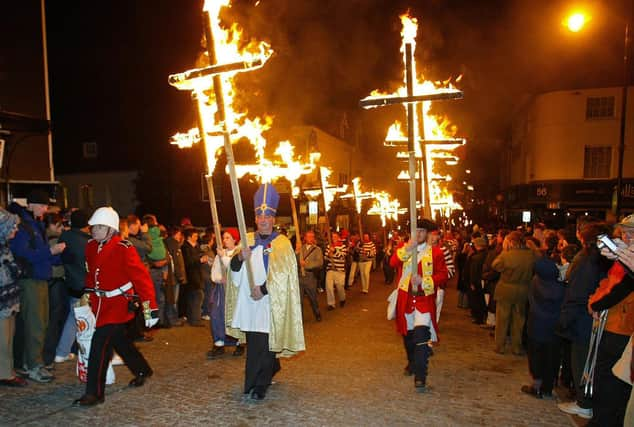Letter: Effigies get burnt in the bonfires in Lewes, which are even bigger than Northern Ireland, but it is all a form of peaceful protest


The biggest gathering for bonfires and the burning of effigies is not Moygashel, the Shankill or Larne but Lewes in Sussex. The occasion does not celebrate King William but remembers the gunpowder plot in 1605.
Effigies of Guy Fawkes and Pope Paul V are burnt, along with more recent ‘villains’ – Sepp Blatter, John Major, Donald Trump and Vladimir Putin (in a Borat style mankini) have all been roasted. It is a legitimate and peaceful form of political protest.
Advertisement
Hide AdAdvertisement
Hide AdIn 1981 the Rev Ian Paisley joined the revellers on bonfire night , thinking it a good opportunity to hand out what were described as “anti-Catholic pamphlets”. He did not get the reception he was hoping for, and the following year was the subject of an effigy himself. It didn't do the big man any harm.
Today's leaders of political unionism would not have handkerchiefs big enough to dry their eyes.
Simon Dilworth, Moygashel